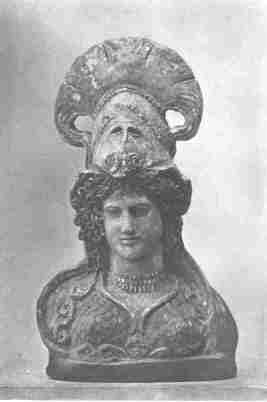Transcribed from the 1899 George Allen edition , emailccx074@coventry.ac.uk
THE HOMERIC HYMNS
A NEW PROSE TRANSLATION
AND ESSAYS, LITERARY AND MYTHOLOGICAL,
by Andrew Lang
DEDICATION
To Henry Butcher
A Little Token of
A Long Friendship p. vii
PREFACE
To translate the Hymns usually called “Homeric” had longbeen my wish, and, at the Publisher’s suggestion, I undertookthe work. Though not in partnership, on this occasion, with myfriend, Mr. Henry Butcher (Professor of Greek in the University of Edinburgh),I have been fortunate in receiving his kind assistance in correctingthe proofs of the longer and most of the minor Hymns. Mr. Burnet,Professor of Greek in the University of St. Andrews, has also most generouslyread the proofs of the translation. It is, of course, to be understoodthat these scholars are not responsible for the slips which may havewandered into my version, p. viiithework of one whose Greek has long “rusted in disuse.” Indeed I must confess that the rendering “Etin” for πελωρis retained in spite of Mr. Butcher, who is also not wholly satisfiedwith “gledes of light,” and with “shieling”for a pastoral summer station in the hills. But I know no wordfor it in English south of Tweed.
Mr. A. S. Murray, the Head of the Classical Department in the BritishMuseum, has also been good enough to read, and suggest corrections inthe preliminary Essays; while Mr. Cecil Smith, of the British Museum,has obligingly aided in selecting the works of art here reproduced.
The text of the Hymns is well known to be corrupt, in places impossible,and much mended by conjecture. I have usually followed Gemoll(Die Homerischen Hymnen, Leipzig, 1886), but have sometimes preferreda MS. reading, or emendations by Mr. p. ixTyrrell,by Mr. Verral, or the admirable suggestions of Mr. Allen. My chiefobject has been to find, in cases of doubt, the phrases least unworthyof the poets. Too often it is impossible to be certain as to whatthey really wrote.
I have had beside me the excellent prose translation by Mr. JohnEdgar (Thin, Edinburgh, 1891). As is inevitable, we do not alwaysagree in the sense of certain phrases, but I am far from claiming superiorityfor my own attempts.
The method employed in the Essays, the anthropological method ofinterpreting beliefs and rites, is still, of course, on its trial. What can best be said as to its infirmities, and the dangers of itsabuse, and of system-making in the present state of the evidence, willbe found in Sir Alfred Lyall’s “Asiatic Studies,”vol. ii. chaps. iii. and iv. Readers inclined to pursue the subjectshould read p. xMr. L. R.Farnell’s “Cults of the Greek States” (Clarendon Press,1896), Mr. J. G. Frazer’s “Golden Bough,” his “Pausanias,”and Mr. Hartland’s work on “The Myth of Perseus.” These books, it must be observed, are by no means always in agreementwith my own provisional theories. p. 3
ESSAYS INTRODUCTORY
THE SO-CALLED HOMERIC HYMNS
“The existing collection of the Hymns is of unknown editorship,unknown date, and unknown purpose,” says Baumeister. Whyany man should have collected the little preludes of five or six linesin length, and of pure
